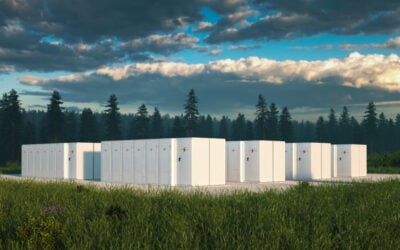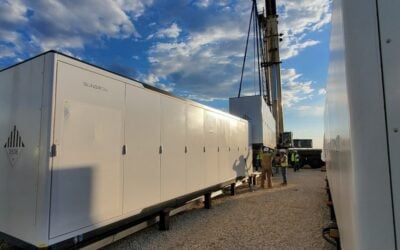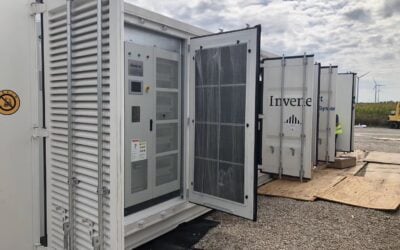
Vehicle-to-grid (V2G) solutions provider Nuvve, along with a host of other groups, has signed a memorandum of understanding (MOU) with the US Department of Energy (DOE) to accelerate the commercialisation of V2G and other vehicle-grid integration (VGI) technologies.
Nuvve has been chosen to work with government agencies, utilities and electrification industry leaders to accelerate the commercialisation of V2G as well as vehicle-to-building (V2B), vehicle-to-home (V2H) and other VGI technologies.
Enjoy 12 months of exclusive analysis
- Regular insight and analysis of the industry’s biggest developments
- In-depth interviews with the industry’s leading figures
- Annual digital subscription to the PV Tech Power journal
- Discounts on Solar Media’s portfolio of events, in-person and virtual
Or continue reading this article for free
The agreement is part of a vehicle-to-everything (V2X) MOU launched by the DOE with a number of partners including national labs, state and local governments, utilities and private companies to evaluate the potential of bidirectional charging in the country’s energy infrastructure.
“The MOU signed today represents a collaborative approach to researching and developing novel technologies that will help unify the clean energy and transportation sectors while getting more American consumers into electric vehicles,” said deputy secretary of energy Dave Turk.
Other participants in the V2X MOU include several DOE and California-based public institutions, California’s three investor-owned utilities, vehicle fleet operators, several automotive giants such as Nissan, Ford and General Motors, and other electric vehicle (EV) solution infrastructure companies like Zeem Solutions, Rhombus and Fermata Energy (a V2X player).
The DOE initiated the MOU to ensure that the development of the EV market incorporates bidirectional charging, which will enable VGI technologies. VGI has the potential to reduce building loads and increase the provision of grid services while also creating revenue opportunities for EV owners.
Nuvve’s main activities are providing bidirectional charging infrastructure – allowing electricity to flow in and out of a vehicle – and the energy management platform to manage that flow of power. It says its energy management platform enables VGI at all levels, including smart charging and V1G to V2B/V2H and V2G. The platform acts as an aggregator to combine the power from a fleet of EV batteries to form virtual power plants (VPPs) that can provide power to the grid.
Depending on the age of the model, it can take as little as five to 20 EV batteries to form a 1MWh system, typically the minimum size for a utility-scale battery energy storage system project.
Gregory Poilasne, chairman and CEO of Nuvve, said: “We look forward to collaborating with the DOE to make V2G and V2B/V2H more ubiquitous and available to fleets and EV owners across the country.”
The company recently struck a deal in Japan to provide its V2G technology to a local power company for the use of EV batteries in providing grid services and other grid stability applications.
It also partnered with US-based VPP project company Swell Energy to explore the integration of different distributed energy resources for homes and businesses. It will investigate how EVs can participate in Swell’s VPP network.






